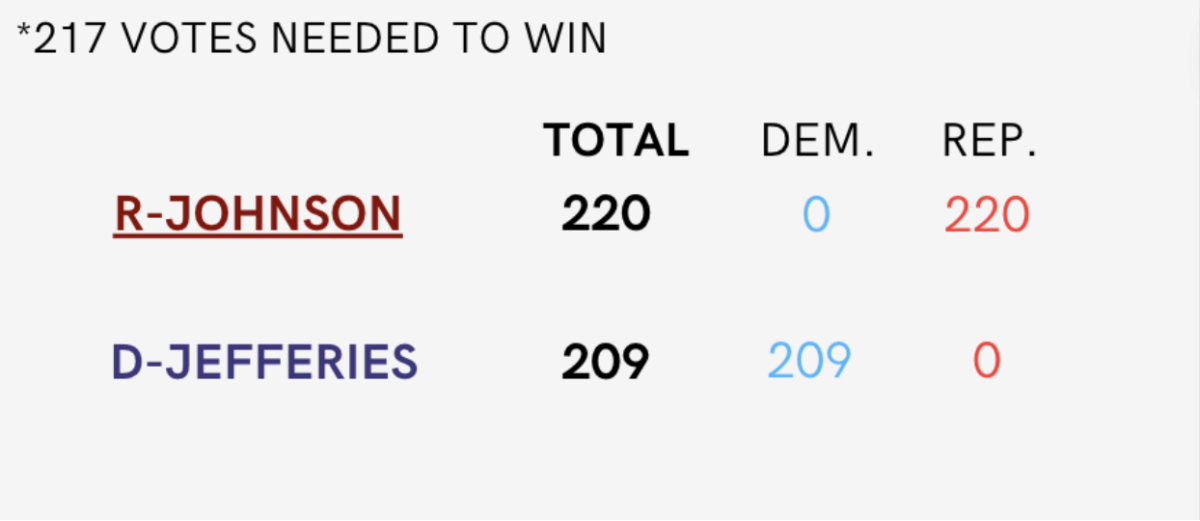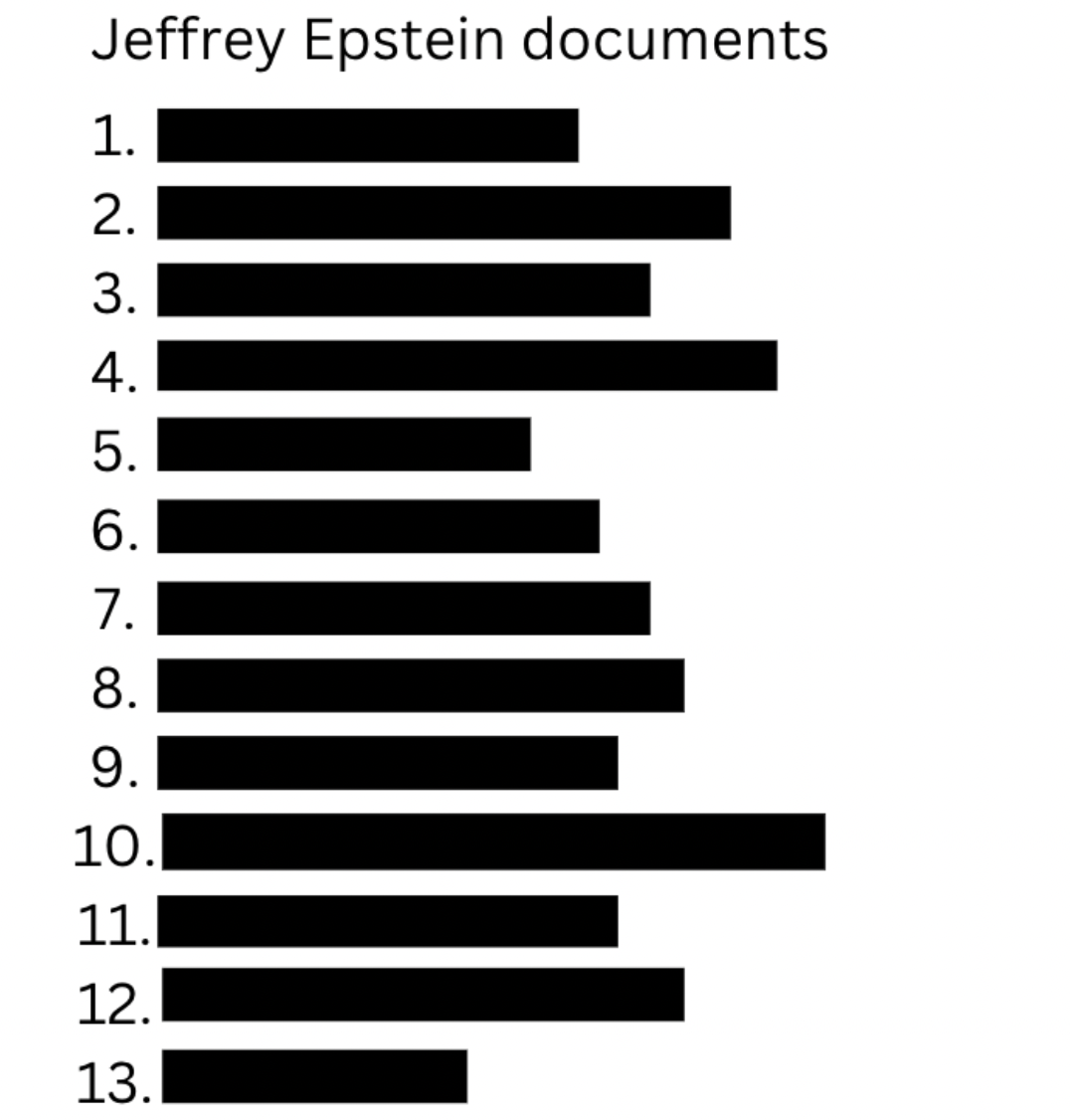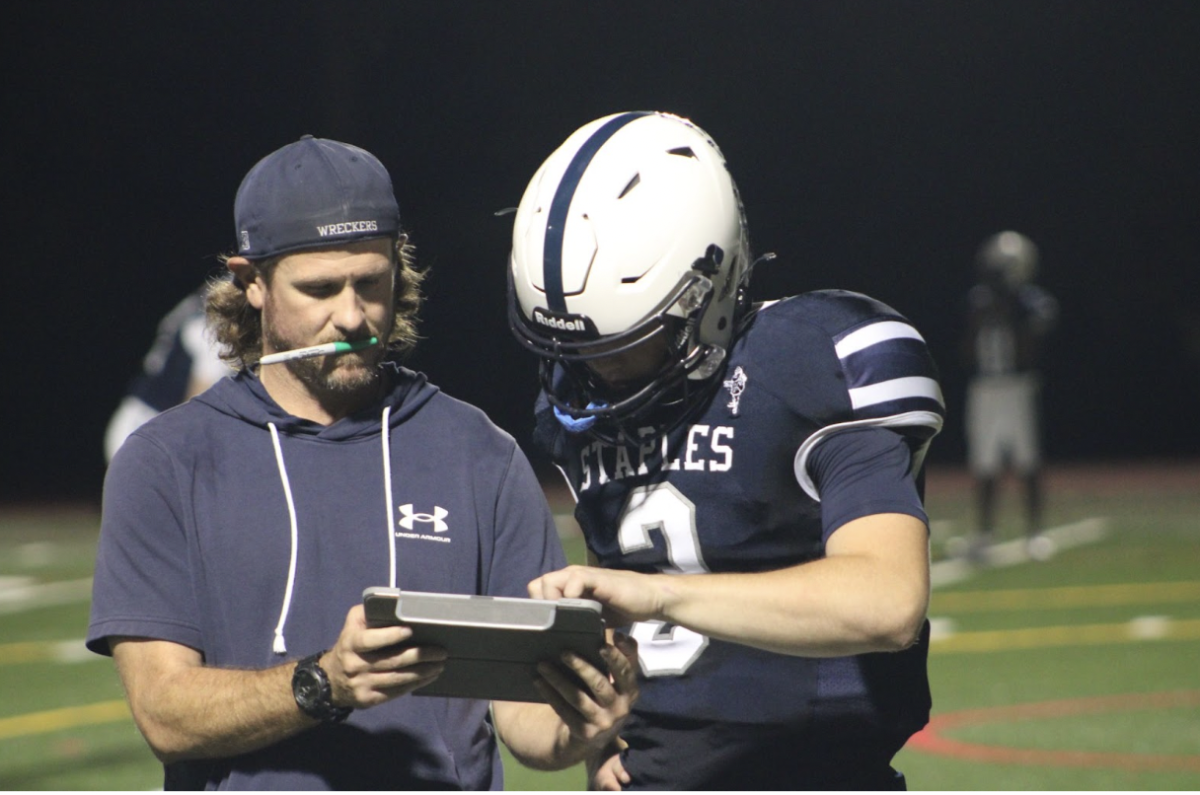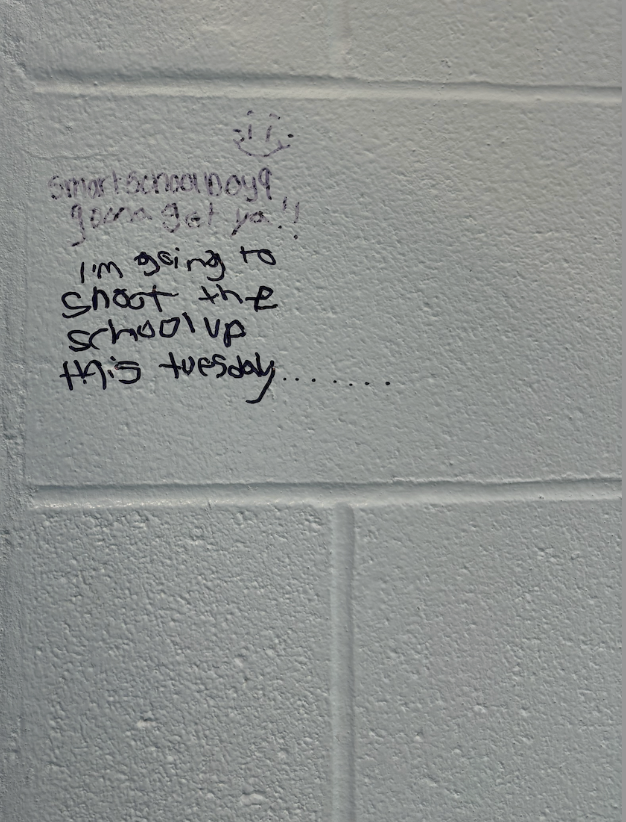Republican Representative Mike Johnson of Louisiana won the election to be the 56th speaker of the House of Representative on Oct. 25 after the House was left without a speaker for nearly three weeks.
After beating Hakeem Jeffries, the Democratic candidate from New York in a 220-209 vote, Johnson is now facing a mid-November deadline to pass to fund the government. Like the last speaker, Johnson is aiming to avoid a government shutdown, according to The New York Times.
The former Speaker of the House, Republican Kevin McCarthy of California, was voted out on Oct. 3 in a 216-210 vote after he struck a deal with Democrats to avoid a federal government shutdown three days prior to his removal. McCarthy’s difficult election back in January had required 15 ballots before he was appointed.
“I think that it’s great that the Republicans came together to find a Speaker of the House because [the] business of the House was halted,” AP U.S. Government and Politics teacher Suzanne Kammerman said. “There’s a lot going on in the world, and I think in order for the House to conduct any business[…] they needed to elect a speaker.”
However, this is not the longest amount of time the House has been without a speaker. In 1856, conflicts over slavery, among other issues, had divided the House of Representatives and it had taken two months and 133 ballots to finally elect a speaker.



















































